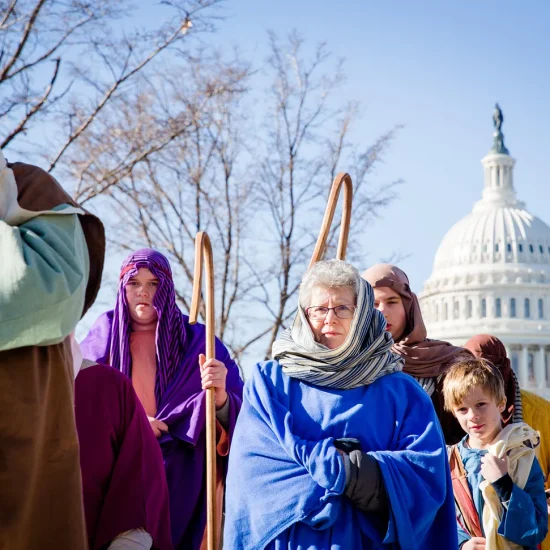By Ken Satterfield
Word&Way Advertising and Marketing Coordinator
I remember getting the call from a former co-worker: "You better turn on a television, this is  bad." Later I recall standing around with the Missouri Baptist Convention staff as the World Trade Center towers collapsed into rubble and hearing audible gasps from those gathered.
bad." Later I recall standing around with the Missouri Baptist Convention staff as the World Trade Center towers collapsed into rubble and hearing audible gasps from those gathered.
That evening, I participated in a sleep study at the hospital. As I filled out forms, the staff person asked if I was facing any thing stressful. Catching CNN's replay of the day's events on the television above me, it was impossible to miss the irony.
September 11 is also memorable because it is my oldest son's birthday. At the time, I struggled to explain how the day's events would always be linked to that date. I recall the image of our other son, then three, standing on the porch and waving a flag for passing traffic, as we gathered to celebrate that Tuesday five years ago.
Memories — both good and bad — make life richer, the moments of joy and pain adding peaks and valleys to our experiences. How can we utilize the power of memories?
Family. Recently, my wife and I gave our mothers "For My Grandchild: A Grandmother's Gift of Memories" by Paige Gilchrist (AARP, 2005) with sections to record life experiences. My mother-in-law also has a spiral-bound journal with daily questions. The book is part of the "Daily Journal of Childhood Memories" series by Kathy Lashier for parents, grandparents and friends, one of a number of similar products available from CQ Products (www.cqproducts.com or 866-804-9892).
LiveJournal.com and a host of other sites, along with well-known "about me" sites like MySpace.com, allow you to journal through the Internet. Decide what you would like to keep and whether you want to share this information with others.
Other suggestions for recollections include furnishing cameras, video cameras or audio recorders as gifts to compile information. Also offer possible questions. (See snipurl.com/life story for ideas). Involving family in scrapbooking is another idea.
People. Beliot College publishes a well-known list of experiences and events that have shaped incoming freshmen (snipurl.com/Beloit). For instance, the class of 2010 has not experienced the Soviet Union, only know of one Germany, have known only two presidents and have always known bar-coding.
As we work with people, do we take differences in experience and technologies into account? On the flip side, do we try to help others understand the significance of history and advances to us?
Church. Today's youth and those not involved in church have missed many aspects that used to be part of church life — Bible knowledge, core beliefs, traditions, the need for mission offerings. Reading the Bible through (see snipurl.com/lanz for a variety of resources), or Ten Steps to Bible Literacy (www.bible-researcher.com/bible-study2.html) are just two available Internet resources. Or check teacherhelp.org for suggestions for creating games and activities for children.
For adults, a pair of books, "The Old Testament Made Simple" and "The New Testament Made Simple" by World Impact Ministries (www.worldimpactministries.org or 205-280-0999), utilize an eight-week series to teach the framework of facts, key ideas and events to small groups. Contact the ministry for a list of trained leaders in your area.
Other ways to celebrate memories include setting up a historical committee or team, scheduling a church homecoming, planning a church anniversary, or recognizing staff and ministry anniversaries.
Finally, as we remember the victims of 9/11, Hurricane Katrina, 2004's tsunami, the genocide at Darfur and areas of the world affected by hunger, war and refugees, you and your church can help keep the needs of these individuals and areas in focus for the community to continue ministry through contributions, actions and prayer (see www.wordandway.org/links).
There have been times for laughter and weeping since well before the days in which Ecclesiastes 3 was written. Our families and our churches can facilitate both.






